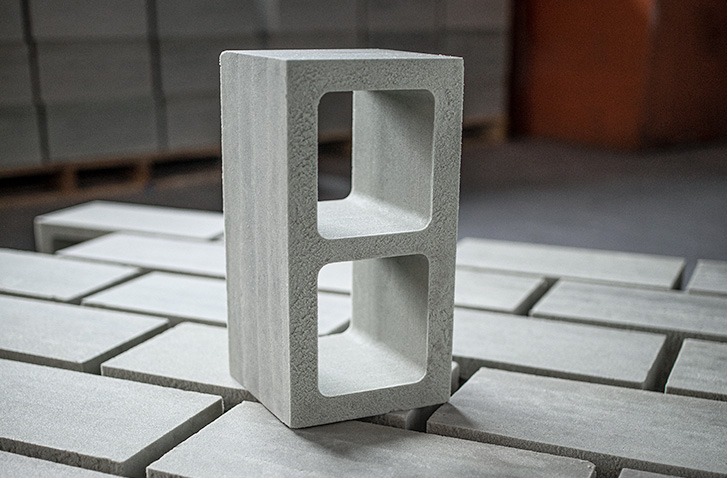Coral does it, oysters do it, can we do it too? The building blocks of biology can be used to develop building blocks—actually, concrete masonry units (CMUs)—that are carbon free. A starting point is using living organisms to create zero-carbon building materials.
According to the Institute of Civil Engineers, enhancement of the mechanical properties of cementitious materials) by using bacteria is known as biocementation or MICCP (microbially induced calcium carbonate precipitation). On hydrolysis, bacteria produce carbon dioxide, which forms calcium carbonate in the presence of calcium ions. The precipitation of calcium carbonate in the concrete matrix augments the mechanical properties of concrete. This would indirectly reduce the carbon dioxide footprint.
By using biological rather than chemical means to create a strong, durable binding agent for aggregate, a zero-carbon alternative to carbon-intensive Portland cement can be made. Bio-cement will transform architecture by providing the construction industry with a new, decarbonized building material that has environmental and mechanical properties that mirror or exceed the capabilities of concrete, wood, steel, and glass.
Developed under a DoD (Dept. of Defense) grant by a team of scientists and engineers at the University of Colorado Boulder, zero-carbon building products are manufactured using naturally occurring microalgae. Using a patent-pending photosynthetic biocementation process, Prometheus Materials, the spin-off production company, combines microalgae with water, sunlight, and CO2 to create a bio-cement similar to the material that coral uses to build reefs and oysters use to generate their shells.
When mixed with aggregate, this bio-cement creates a zero-carbon building material with mechanical, physical, and thermal properties comparable or superior to Portland cement-based concrete. The material circumvents the carbon-intensive processes involved in the production and transportation of the 4 billion tons of Portland cement made each year; processes that are responsible for 8% of the world’s total annual CO2 emissions, according to various reports. This, along with the product’s ability to sequester carbon during the production process, results in a reduction of approximately 90% of embodied carbon compared to existing Portland-cement based products.
Prometheus Materials, recently closed an $8 million Series A financing round led by Sofinnova Partners, a European life sciences venture capital firm, with participation by the Microsoft Climate Innovation Fund, GAF, The Autodesk Foundation and Skidmore, Owings & Merrill.
Prometheus Materials will use the funding to commercially manufacture zero-carbon CMUs at its production facility in Longmont, Colorado. The products will be marketed to architects, engineers, property and facility developers, and others in the construction industry as an affordable, strong, and durable zero-carbon alternative to Portland cement-based units. Pilot projects using Prometheus Materials masonry units are currently underway including a new data center for Microsoft.
During the next two years, Prometheus will use its Series A funding to begin commercial production of other zero-carbon building products, including:
- Precast biocomposite elements, a decarbonized alternative to traditional precast Portland cement-based roofing tiles, wall panels, sound barriers, and other concrete elements.
- Ready-mix biocomposite, a decarbonized alternative to traditional Portland cement-based ready-mix concrete.
Prometheus Materials delivers sustainable building materials that accelerate the world’s transition to a carbon-negative future. With their CMU product, they have achieved compressive strengths of approximately 2000 psi, which meet numerous ASTM standards for both structural and non-structural applications. Higher compressive strengths will be achieved through continued development.
In Greek mythology, Prometheus is best known for defying the gods by stealing fire from them and giving it to humanity in the form of technology, knowledge, and civilization. Prometheus is known for his intelligence and for being a champion of humankind. What better name to chose for a company that has the goal of sustaining civilization’s progress through the application of both technology and biology?
Want to tweet about this article? Use hashtags #construction #sustainability #infrastructure #futureofwork


